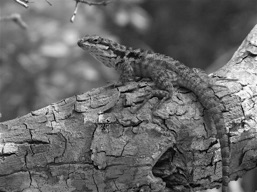Abundant evidence supports the role of colonization and competition dynamics in shaping patterns of diversity in island radiations, but the potential roles of predation and its mediation of competitive interactions have received far less attention. Using members of the classic Caribbean
Anolis lizard radiation, and our ability to manipulate lizard assemblages on entire small islands in the Bahamas, we will address questions about how predation affects an established resident anole species (
Anolis sagrei, trunk-ground ecomorph) and its competitive interactions with colonizing populations of the more arboreal
A. smaragdinus (trunk-crown ecomorph). On 16 islands originally inhabited only by
A. sagrei, we have imposed a 2x2 factorial manipulation of
A. smaragdinus and the predatory lizard
Leiocephalus carinatus. Via annual censuses, thrice-yearly surveys, radio-telemetry, and diet analysis using DNA meta-barcoding of lizard feces, we are evaluating: (1) how predators presence/absence indirectly affects establishment success of the colonizing anole species; and (2) how predation, interspecific competition, and their interaction affect the habitat use, diet composition, and degree of individual resource-use specialization of the resident anole species. These data will directly test the mechanisms by which predation affects interspecific interactions among closely related taxa, thus adding an exciting dimension to our understanding of the factors that shape establishment dynamics and coexistence in adaptive radiations.



